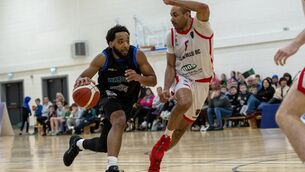Sat, 17 Feb, 2018 - 00:00
On the face of it, the hack’s utopia, set out by Diane Shah in a famous 1983 column for the Los Angeles Herald Examiner, never looked further away.
“Er, Miss Shah? This is Steve Carlton with the Philadelphia Phillies. I was wondering … ”
Already a subscriber? Sign in
You have reached your article limit.
Subscribe to access all of the Irish Examiner.
Annual €130 €80
Best value
Monthly €12€6 / month
Introductory offers for new customers. Annual billed once for first year. Renews at €130. Monthly initial discount (first 3 months) billed monthly, then €12 a month. Ts&Cs apply.
CONNECT WITH US TODAY
Be the first to know the latest news and updates
CourtsSports Columnistslarry ryanPlace: USPlace: IrelandPlace: ParisPerson: Larry RyanPerson: Diane ShahPerson: ShahPerson: Steve CarltonPerson: CarltonPerson: Joe SchmidtPerson: Jim GavinPerson: Zlatan IbrahimovicPerson: SchmidtPerson: Jordan LarmourPerson: James RyanPerson: Greg FeekPerson: Robbie HenshawPerson: Diarmuid LyngPerson: John CaulfieldPerson: JohnPerson: GilesyEvent: 1980 World SeriesEvent: President’s Cup finalOrganisation: Philadelphia PhilliesOrganisation: PhilliesOrganisation: MTK GlobalOrganisation: Paris Saint GermainOrganisation: HCL TechnologiesOrganisation: Manchester UnitedOrganisation: Taylor & FrancisOrganisation: All BlacksOrganisation: IRFUOrganisation: DeloitteOrganisation: GAAOrganisation: RTÉOrganisation: Sky SportsOrganisation: League of IrelandOrganisation: Shamrock Rovers’Organisation: FAIOrganisation: Dundalk TV
















